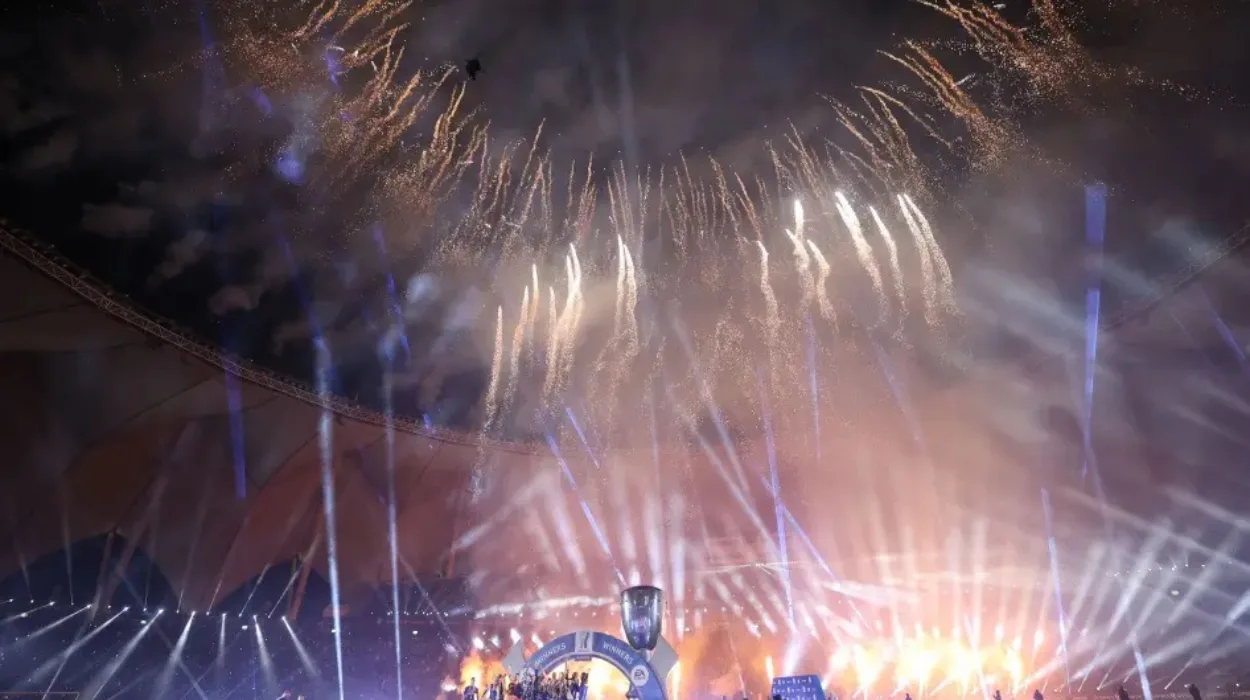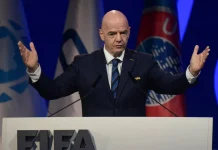While the world turns its attention to the future of sportsmanship, the recent booing of the Asian Football Confederation’s decision to award the 2034 FIFA World Cup Saudi Arabia has raised many questions.
Opponents of Saudi Arabia’s bid for awarding this great title have pointed out that it is one of the types of corporate sportswashing, a strategy used by countries to divert the attention of the global community from their human rights abuses and questionable past deeds.
Saudi Arabia has invested 1 billion USD and made successful bids for international events like the FIFA World Cup are a sign of the country’s progress to the rest of the world, in the king’s case it is seen as an act of trying to obscure its poor human rights record. Here are the reasons critics would want to say that Saudi Arabia is not fit to host the 2034 FIFA World Cup regarding corporate sportswashing.
Sportswashing Defined: A Strategy of Distraction
Sportswashing is when a country tries to change people’s perception of that country by hosting major sporting events to overshadow something that the country may be doing wrong, by denying the people some of their basic rights, like free speech, or where the leadership is corrupt.
Through hosting global sports events a country tries to change the perception about the said country by presenting itself in a new and positive manner, as a modern, progressive, and liberal society, while in most cases its record is the opposite. The critics evaluating the political agenda of Saudi Arabia over the past 10 years point towards its bid for the hosting of the 2034 Fifa World Cup Saudi Arabia is the epitome of this idea.
It has been known several times that Saudi Arabia actively applies sports to distract attention from its violations of human rights. In the last few years, the kingdom has bet big on big-ticket sporting attractions – from Formula E races to the hosting of international boxing matches and even the Newcastle United English Premier League football club.
These efforts have been regarded by many as a part of an attempt to change the focus of the international community from the dictatorial government of the country to the oppression of women, and the stifling of dissent.
Human Rights Report of Saudi Arabia
The human rights situation in Saudi Arabia continues to attract the international community’s attention. However, great strides were taken to paint the kingdom as a modern country, but many human rights abuses persist in the state. The treatment of women in the kingdom is likely the most criticized aspect of the kingdom’s domestic policies.
However, observant changes only happened recently, with the relative opening for women to have the right to drive and opportunities in the labor market; gender discrimination is still deeply rooted.
Apart from the violation of women’s rights and human rights in 2023, Saudi Arabia has also been accused of human rights abuses, especially against dissenting citizens and activists. Saudi Arabia’s connection with external nations further suffered a string of bad images in the wake of the murder of journalist Jamal Khashoggi in 2018.
FIFA, or the Bennification of Soccer and the World
The organization that is administering the World Cup has been criticized for quite some time now for being financially driven and politically compromised. The decision to approve the 2022 World Cup for Qatar when this country violates human rights paints a very bleak picture. Other scholars have recently demeaned FIFA for submitting Saudi Arabia for the 2034 World Cup; participating in whitewashing authoritarian regimes.
However, it is not the World Cup only in which Saudi Arabia is using the sports to bolster its image. The Saudi authorities have also invested lots of money into such projects as the LIV Golf Tour —it is also believed that KSA is trying to build a favorable image in the prism of Western stars and journalists.
Absence of Democratic Rights and Civil Liberty
Saudi Arabia is a monarchy that is ruled without any elected government; the political rights of the citizens of Saudi Arabia remain slim. There are no political parties, and the mass media remains the principal domain of the state. There is freedom of speech, but anyone who disagrees with the government can be put into jail, tortured, or killed. But the problem of erasing democratic freedoms can cause concerns when the hosts have to support every player and fan of the championship.
FIFA points out the standards it has set for the host countries of the World Cup, among which there is a requirement as to the health of the teams and the fans. Nevertheless, organizing the tournament in a country where any dissent is met with oppression and even death strengthens doubts as to what will happen to fans, journalists, and activists from other countries who will want to publicly express their attitude towards the Saudi authorities.
Employer Maltreatment of Migrant Workers
The report also shows that Saudi Arabia lacks respect for human rights in the case of the abuse of migrant workers. Many people from the countries of India, Pakistan, and Bangladesh are Saudis’ main sources of cheap labor in construction, domestic helpers, and hotels. These workers endure inhuman working conditions, are worst paid, and have little control over their movements or working conditions.
The Fans in the 2022 World Cup in Qatar made people realize the poor treatment of migrant workers in the Gulf region especially in the construction of the tournament’s facilities. Since labor rights laws in Saudi Arabia are no different from those in Qatar, one can anticipate that workers preparing for the 2034 World Cup will have major issues.
Conclusion
Saudi Arabia’s attempt to host FIFA World Cup 2034 is not just an idea in terms of construction or sports but it’s a question of the image of a country with a very poor human rights record. Perhaps it is selling itself as the progressive society of the twenty-first century; however, it imprisons women, political opponents, and migrant workers.












